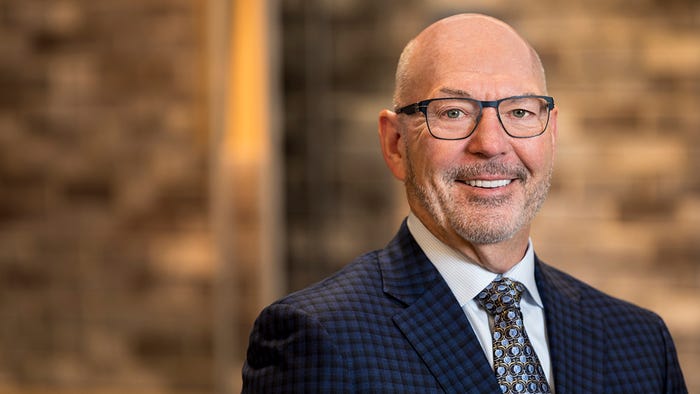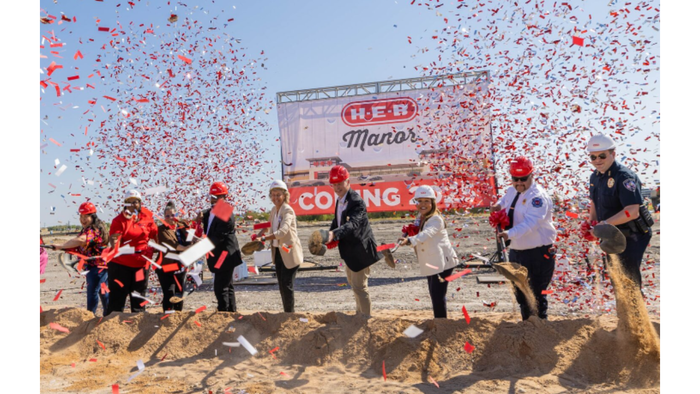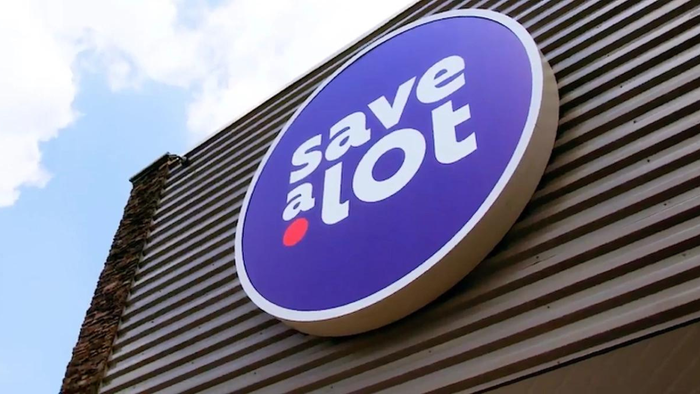Talking shop with... MARK DUNSON
January 1, 2018
The president of Emerson’s Retail Solutions discusses how manufacturers are addressing retailers’ energy savings needs. What are HVAC/R equipment manufacturers doing to help the retail industry enhance performance? Mark Dunson: What we’re doing as a business is focusing on two areas—providing efficient equipment and developing best practices. Retailers are undoubtedly looking for highly efficient equipment and most of our discussions begin by helping them set clear objectives and then applying energy efficient technologies where opportunities exist within their HVAC, refrigeration, and lighting systems. The discussion then really takes a turn toward best practices. Equipment to monitor and control the store environment has been pervasive for a long time and there has been a lot of data collected. However, retailers have had a hard time sorting through that data to develop actionable techniques beyond bolt-on technologies. By the nature of our experience in the U.S. and around world, Emerson is able to create software-based algorithms and define procedures that change the way things are being done to drive cost improvement. Emerson’s ProAct software brings together the ability to collect, analyze and convert facility data into actionable information. Serving as the cornerstone of our Intelligent Store architecture, ProAct provides the ability to gather enterprise data into a single software tool, highlighting the benefits of enhanced energy efficiency, better asset management, reduced maintenance costs and compliance tracking. With such varied equipment in supermarkets, how can retailers keep tabs on how everything is performing? From facility management systems to smart compressors, our Intelligent Store architecture helps deliver better information and better overall performance from retailers’ HVAC, refrigeration and lighting systems. Our Intelligent Store architecture is completely customizable, with each solution tailored to meet the specific needs of not only the operator but the systems found within the unique facilities across the enterprise. While retailers get optimal capabilities, performance and value by installing Emerson products that are designed to work together, the Intelligent Store architecture can work with other third-party systems and devices, enabling a single view into all facilities. How is Emerson helping retailers to benchmark and measure equipment performance? We generally start with a macro-level analysis with data from utility bills and maintenance spend. With that information, we consult with the customer and outline what we believe we can do for them in terms of getting the most out of their existing equipment and infrastructure. Our patented commissioning services can be applied to new and existing stores. We do a detailed survey of the store, taking a hard look at how the store is actually operating versus how the store was designed to perform. We provide them with an action list of things that can be done that would yield improvements of 5% to 15%. Savings at the lower end of this spectrum can often be achieved simply by optimizing existing equipment, while higher savings are attainable by applying more efficient and newer technologies. Why is it so hard to sustain the initial savings realized by an energy management project? Given that a supermarket can have hundreds of pieces of equipment, over a period of time adjustments are made that may allow them to drift from their optimal setpoints. Once we do a tune=up to restore the proper setpoints, Emerson’s ProAct software’s setpoint verification capabilities can perform ongoing verifications. Emerson’s basic proposal is that energy improvement projects have to be sustained over a period of years to have a continued return on the investment. It is not just a one-time shot in the arm. What does the future hold? Emerson is always looking for ways to work with our retailer partners to drive efficiency and spot any potential for energy waste early on. This can even happen in the design phase. Our engineering consulting team specializes in sustainable and energy efficient designs that are many times LEED accredited. We take that to the next step by delivering an operations manual that specifies how the store should operate on an ongoing basis. We’re doing several programs now where we are performing real-time monitoring of equipment performance, for example. While a piece of equipment might not be at the point of signaling a failure, it could be trending in the wrong direction and that could mean wasted energy or increased maintenance costs. We continue to hone our holistic approach to efficient management of mechanical systems. Systems and devices that haven’t been communicating now have to be connected to achieve that next level of systems efficiency. Emerson along with industry participants have already begun to deliver that future and will continue to do so in coming years.
About the Author
You May Also Like




